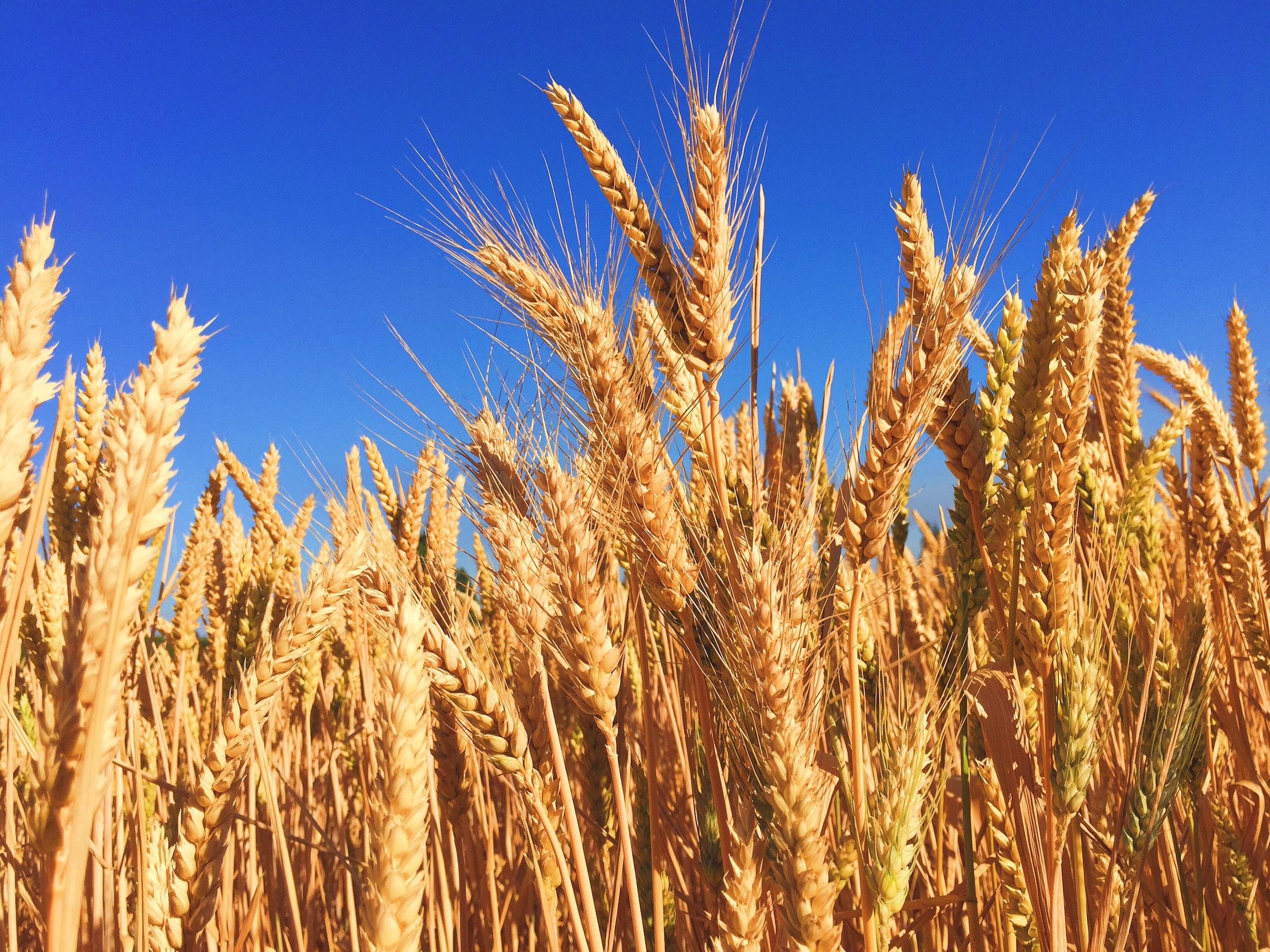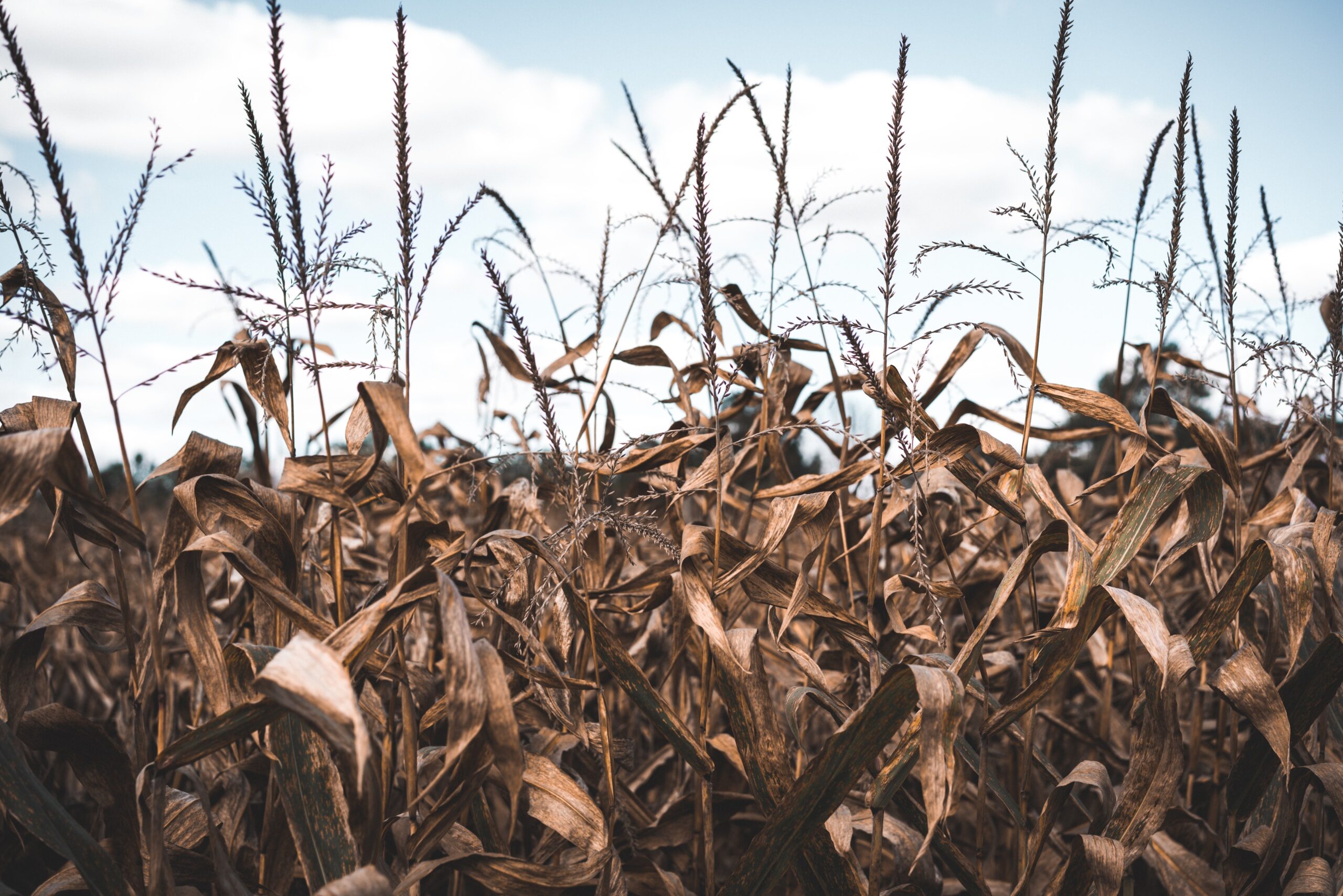Wheat has been a staple in the human diet for centuries, but its popularity may end thanks to the use of glyphosate in our wheat supply.
New research suggests that the widespread use of glyphosate is killing off our food supply, harming human health and destroying healthy soil contributing to desertification (more about that in another blog).
Glyphosate is the active ingredient in Roundup, and it is used to dry wheat before harvest, making it faster and easier to go from field to bag. But it also poisons and kills the wheat plant, leaving behind a toxin-laden grain we consume in our bread, pasta, crackers and baked goods three times a day, at least.

A SHORT HISTORY LESSON ON GLYPHOSATE
Its original patent in 1961 by the Stauffer Chemical Company was a chelating agent meant to strip mineral deposits off pipes and boilers in commercial hot-water systems.
In 1968, Monsanto patented glyphosate as an herbicide in agriculture, using it as a weedkiller.
In the early 2000s, it was patented a third time (by Monsanto again) as an oral antibiotic. All of these applications impact human health in a negative way.
THE PROBLEM WITH GLYPHOSATE AND HUMAN HEALTH
Unfortunately, this herbicide/antibiotic also kills off beneficial bacteria in our gut and enzymes in the wheat grain, making it less nutritious. And when consumed, glyphosate can cause inflammation in the body. This inflammation can lead to several health problems, including joint pain, fatigue, headaches, gastrointestinal disorders, obesity, and cancer.
In essence, the use of glyphosate in our food could be killing us slowly, as demonstrated in a study conducted by Gilles-Eric Seralini, a professor of molecular biology at the university of Caen Normandy. They showed that chronic exposure to low doses of Roundup (glyphosate) leads to significant harm in rats. Over a two-year experiment, the female rats developed mammary tumours, and male rats developed damage to their liver and kidneys. Both experienced reproductive problems and early death.
In 2015, the International Agency for Research on Cancer, part of the World Health Organization, declared glyphosate a probable carcinogen. DNA damage can occur when human liver cells are exposed to low doses of glyphosate. DNA damage is a precursor to cancer.
“Human white blood cells exposed to glyphosate can also suffer from DNA damage, including a gene that suppresses cancer tumours (the p53 promoter gene). Destroying the protective benefits of the p53 gene paves the way for invasive leukemias and lymphomas,” says Stephanie Seneff, Ph.D.
To dive deeply into the topic of Glyphosate, check out Toxic Legacy: How The Weedkiller Glyphosate is Destroying Our Health and The Environment by Stephanie Seneff, Ph.D.
 With the ever-growing presence of glyphosate in our lives, it is no surprise that most of us suffer from some form of gastrointestinal issues. Research shows that glyphosate damages the lining of the gut and wipes out our healthy gut bacteria communities, which can lead to even more health complications.
With the ever-growing presence of glyphosate in our lives, it is no surprise that most of us suffer from some form of gastrointestinal issues. Research shows that glyphosate damages the lining of the gut and wipes out our healthy gut bacteria communities, which can lead to even more health complications.
These negative impacts can range from mild discomfort to more severe conditions such as Irritable Bowel Syndrome, Chron’s disease, Colitis and even Anxiety and Depression. None of these are ideal when trying to live a comfortable and healthy life.
However, perhaps an even bigger concern lies in something called Small Intestinal Bacterial Overgrowth (SIBO), which occurs when there is an imbalance between good and bad bacteria in the small intestine. This can cause bloating, gas, fatigue, and many other chronic health problems.
It is clear that being exposed to glyphosate for extended periods of time can have serious ramifications on our overall well-being and should be avoided if possible.
GLYPHOSATE AND THE ENVIRONMENT

Glyphosate is having a vast and alarming impact on the environment. Not only does it contribute to water pollution, but its use has caused an overall decline in soil fertility, contributing all the more to soil erosion. This decline not only harms the flora and fauna of an area but also potentially impoverishes soils beyond repair.
To make matters worse, glyphosate has been identified as one of the primary agents killing essential pollinators such as bees and butterflies. The loss of these vital species jeopardizes our own crops and food sources, as well as countless other ecosystems worldwide — an environmental imbalance that can spell disaster for generations to come.
It has been suggested that banning its use could significantly reduce the ecological damage it causes. However, glyphosate remains widely used because of its efficiency in controlling weeds – a battle that must still be won without exacerbating our environmental issues.
CONCLUSION
The death of wheat is upon us, but that doesn’t mean we have to go down with it. Still, some farmers are growing quality wheat and other grains without glyphosate. We have to seek them out and support them by buying their products.
Additionally, we can help detox any exposure to glyphosate by investing in targeted nutrients that support our liver function. Have you taken steps to avoid exposure to glyphosate? What kind of targeting nutrients do you take?
To learn about your blood’s glyphosate levels, speak to your natural health care practitioner for testing.
WHAT TO DO?
Buy Organic and support local organic grain farmers
Look for the verified non-GMO label
Take care of your liver with targeted nutrients like herbs, milk thistle, and dandelion.
Heal your gut with bone broth and collagen.
Eat a sulphur-rich diet, including garlic, onions, and cruciferous vegetables like Brussels sprouts, cauliflower, and broccoli.


